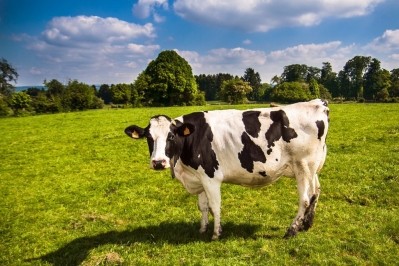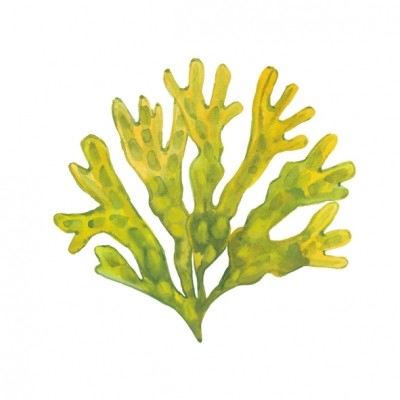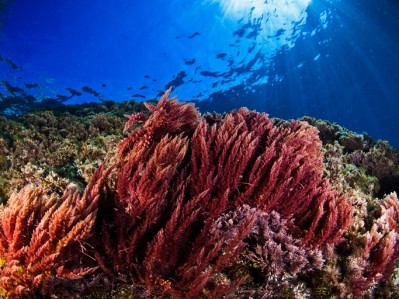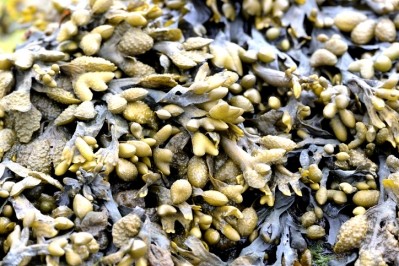Seaweed strain may cut ruminant methane production
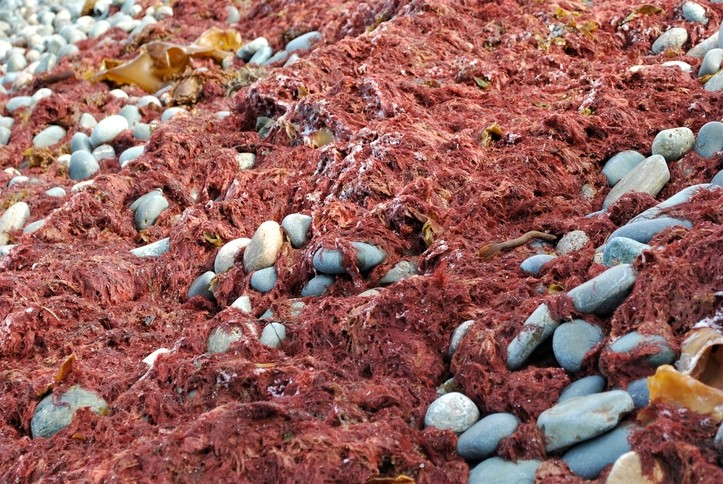
The work builds off earlier laboratory-based trials conducted in Australia and uses the same strain of seaweed, said Ermias Kebreab, Sesnon Endowed Chair for sustainable agriculture and deputy director of the Agricultural Sustainability Institute in the department of animal science at the University of California, Davis.
The group has almost completed a short-term feeding trial looking at methane reduction when different amounts of seaweed are added to dairy cattle diets.
“We did a lab trial first to make sure that it would work and we replicated the effect the Australians have seen and it worked really well so we decided, ‘Let’s try it in animals,” he told FeedNavigator.
The initial trial looked at supplementing diets with .25%, .5% and 1% seaweed, he added.
“For the preliminary trial it was over 30%, which was pretty good; I wasn’t expecting that,” he said of the reduction in methane seen.
A tangential goal of the feeding trials also is getting other researchers involved, he said. “One university can’t do this by itself – it would take years and years to do all the work.”
“We’re hoping that people will pick this up and we’ll have a multi-locational trial – we would like to see this being repeated around the world, in Europe and other places in the US to build up the knowledge,” said Kebreab. “We don’t need to do the same thing over and over but [others could] change the dosage and the diet – there are a number of factors in play.”
Methane reduction
Initial interest in reducing emissions from livestock started several years ago because the process also is a loss of energy for animals, said Kebreab. However, additional urgency has been given to the process as California is requiring the dairy producers and others to reduce the methane generated 40% by 2030.
“In the last few years there’s been more and more interest in additives,” he said.
That line of inquiry was supported by the development of a commercial product that appeared to reduce the methane a cow generated, he added.
Seaweed studies
In an initial trial with the seaweed additive being assessed, the researchers found that the seaweed is salty and that cows may reject the supplement if too much is used, said Kebreab.
To incorporate the seaweed into the diets, it is being mixed with molasses and then added to the existing ration. In the future, there would be interest in adding at a different step including potentially into the feed pellets used.
A group in Australia collects the algae used and freeze-dries it before sending it to the US, he said. “Once we get it is lumps of seaweed so we break it down into a powder and mix with molasses,” he added.
The seaweed being used in the trials contains bromoform as a secondary metabolite, he said. That element appears to be what is influencing the reduction in methane generated.
“It interrupts the final step in the methanogenesis pathway – it stops the enzyme that is required to form methane,” he said. “In the final step you need an enzyme and this compound within the algae inhibits the enzyme so the methane does not get formed.”
The current feeding trial involves 12 cows being given one of three diets, said Kebreab. They include a control and four cows getting a high dose at 1% or a low dose at .5%.
The ongoing project rotates cows through the differing diets in three-week periods, he said. “We’re in the last period right now – in the next few weeks it will be done,” he added.
“Looking at the results from the last two periods they were consistent – so there is potential here,” he said.
In addition to the reduction in the amount of methane generated, other initial findings have been that milk production remains the same although there is a slight drop in feed intake, he said.
“In terms of milk composition, that’s something we’re looking at,” said Kebreab. “We’ve collected the data and we’re analyzing it right now – we’re also sending [a collected sample] to be pasteurized and will be having taste panels to see if there is a change in taste.”
There remain several questions that have to be asked about how to best make use of the potential feed additive, including if it will continue to work with different diets or when used for an extended period of time, he added.
“We need to figure out what is the long-term effect,” he said. “If you feed for six months what happens? Do they get used to it? We’re hoping to start that trial over the summer.”
The longer-term study is intended to use a larger number of cows, but keep the current diets of control, .5% inclusion and 1% inclusion, he said. However, the animals would not be rotated through the different feeds.
There also are questions regarding how the additive would function in a high fiber diet, he said. A future project of interest would be comparing the use of the additive in beef cattle during a period on a high forage diet with use in a feedlot.
Discussions are already in progress with commercial-scale algae producers and those involved in studying algae species found in California, said Kebreab. If the seaweed additive were found to be effective, then efforts to establish a commercial production would be needed.
“In the next 3-4 years if we’re able to scale this up it would be a good achievement,” he said. “There is a lot of interest now – if everything works out then … people would come up with ideas on how to grow this quickly and cost efficiently.”
